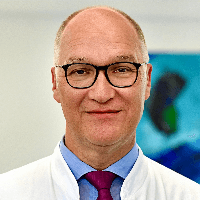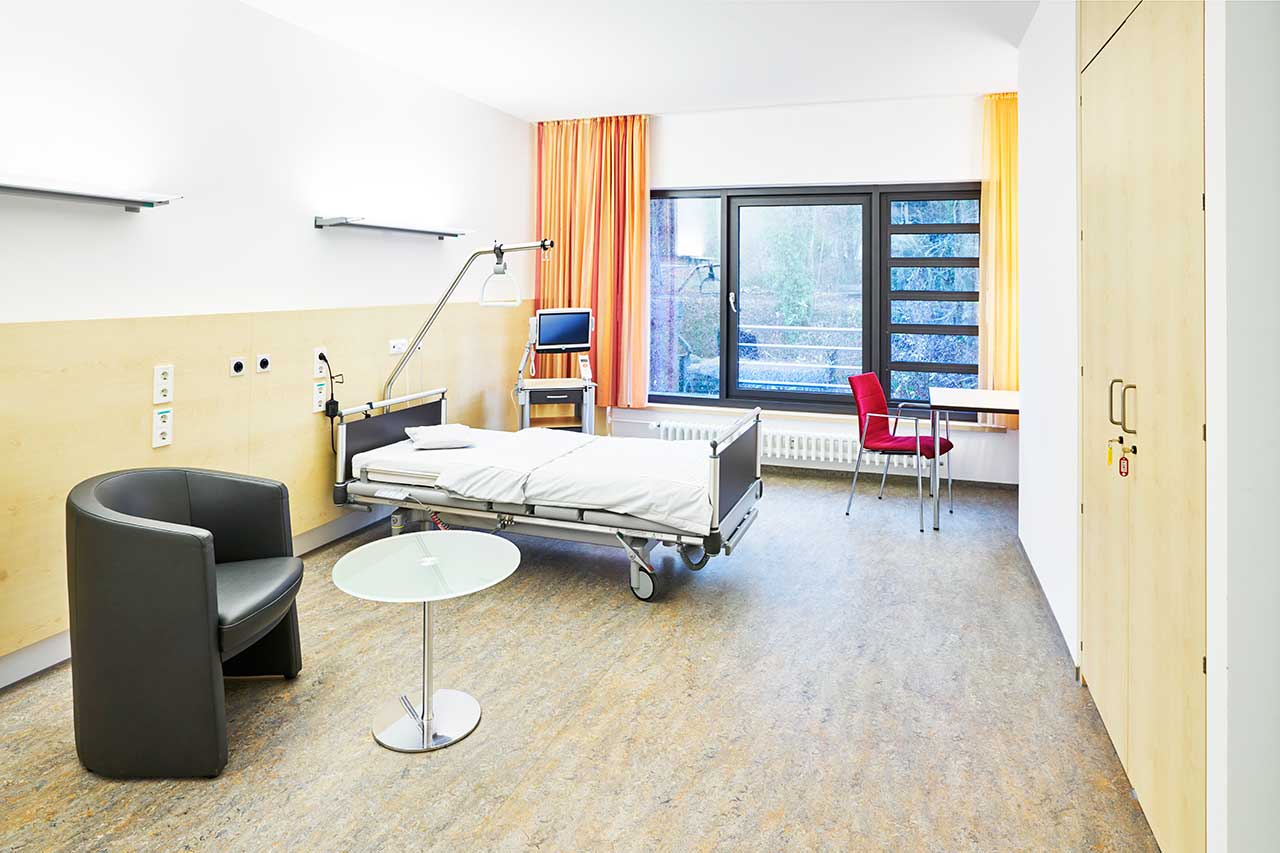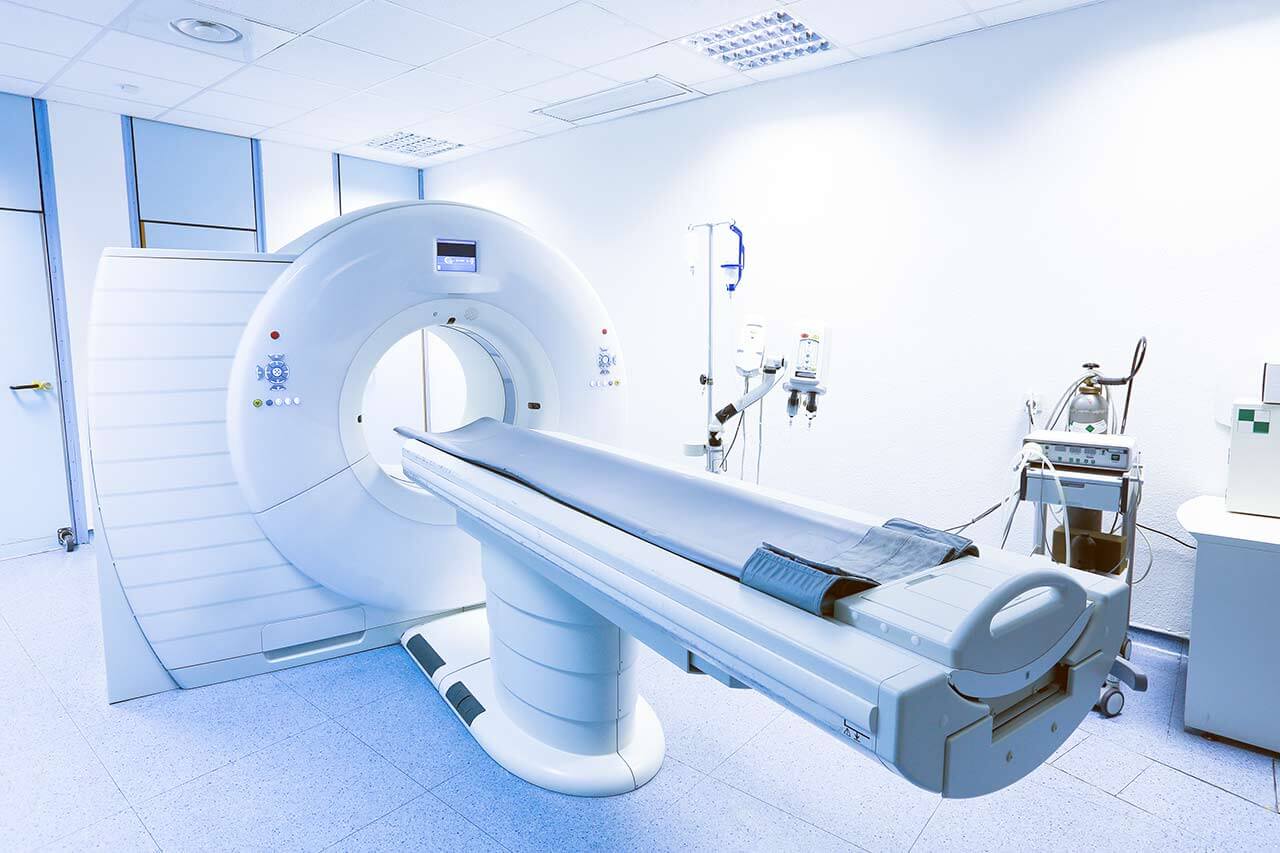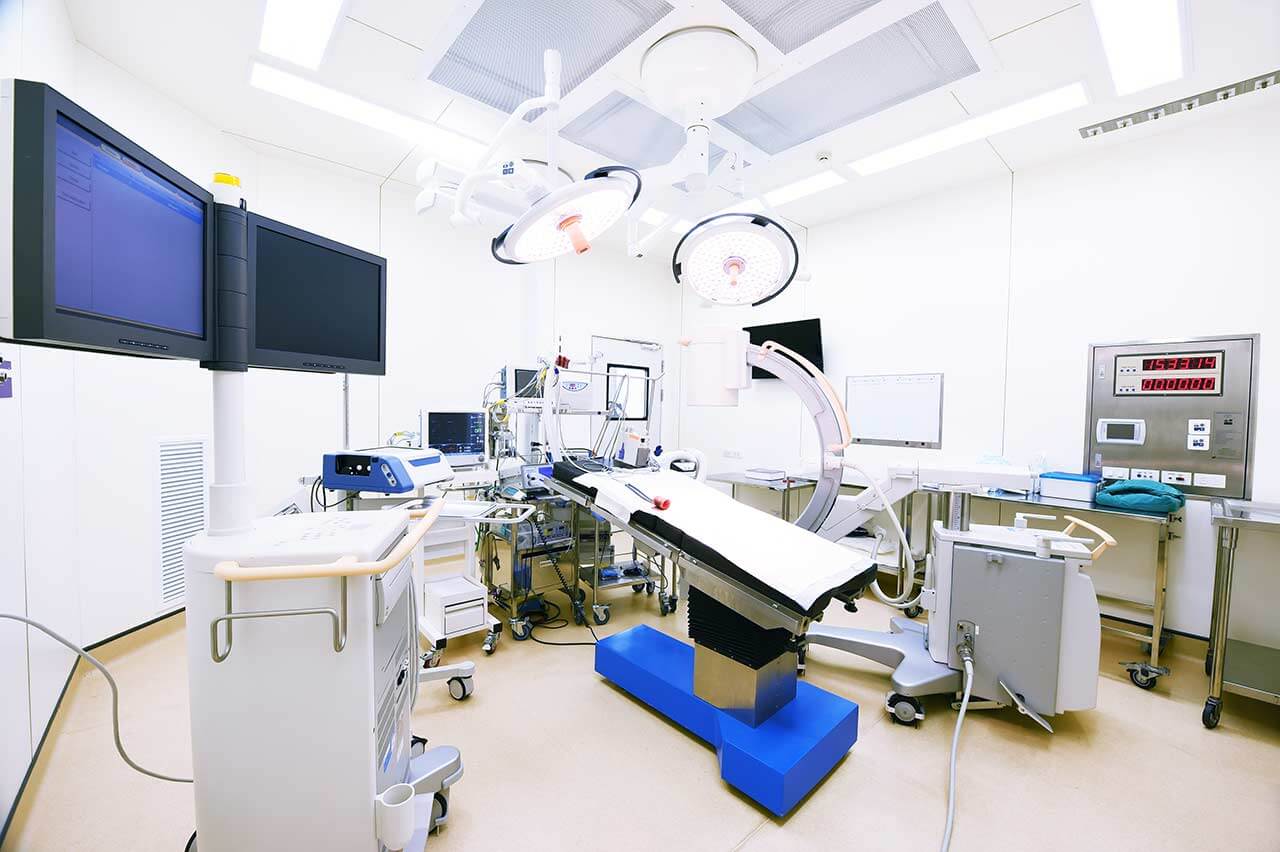
The program includes:
- Initial presentation in the clinic
- clinical history taking
- review of medical records
- physical examination
- laboratory tests (on indications):
- complete blood count
- biochemical analysis of blood
- inflammation indicators (CRP, ESR)
- indicators blood coagulation
- neurological examination
- CT/MRI scan (one region)
- functionality x-ray
- neuropsychological tests (on indications)
- differential diagnosis with other neurological diseases
- consultation of related specialists
- symptomatic specific treatment
- the cost of essential medicines and materials
- nursing services
- control examinations
- full hospital accommodation
- developing of further guidance
Required documents
- Medical records
- X-ray examination, MRI/CT scan (if available)
Service
You may also book:
 BookingHealth Price from:
BookingHealth Price from:
About the department
According to the Focus magazine, the Department of Neurology and Epileptology at the University Hospital Erlangen ranks among the best German medical facilities specializing in the treatment of multiple sclerosis and Parkinson's disease!
The department offers all the possibilities of modern medicine for the diagnostics and treatment of a wide range of diseases of the nervous system, including rare and especially complex ones. The treatment of stroke, epilepsy, movement disorders, neuromuscular diseases, chronic headaches, neurovascular diseases and nervous system cancers is of key interest for the department's medical team. The department has a specialized Stroke Unit for providing emergency care to stroke patients. Epilepsy is treated in a narrowly focused center known as one of the best in all of Germany. The treatment success is largely determined by the quality of the preliminary examination, and therefore the department has a progressive technical base allowing doctors to carry out comprehensive diagnostics of the nervous system and detect the slightest functional and structural disorders. The specialists in the field of neurosurgery and neuroradiology are actively involved in the therapeutic process. They regularly gather for boards to study complex clinical cases. With over 3,500 inpatients and about 7,000 outpatients annually, the department is one of the largest and most successful in its area of specialization in the country. The department is headed by Prof. Dr. med. Dr. h. c. Stefan Schwab.
The department is proud of its state-of-the-art Stroke Unit, which is the largest in Bavaria and the whole of Germany, and is also the leader in treatment success rates. In addition, the department operates a high-tech Intensive Care Unit specializing in the treatment of critically ill patients with neurological disorders. The department offers specialized outpatient clinics for the treatment of multiple sclerosis and neuroimmunological diseases, movement disorders, dementia, neuromuscular diseases, nervous system cancers and neurovascular disorders. In 2008, the department opened a new Section of Molecular Neurology, which combines basic clinical research with practical activities.
It is worth noting the Epilepsy Center where neurologists, neurosurgeons, neuropsychologists and other specialists work hand in hand for the benefit of their patients. The patients suffering from epilepsy are offered both classical and advanced treatment methods. Neurologists are competent in conservative therapy, which is based on an individually developed drug therapy regimen. If medications do not help the patient to get rid of epileptic seizures, neurosurgeons carry out surgical treatment – brain resections, disconnection surgery, vagus nerve stimulation and other interventions. Nevertheless, in more than 70% of cases, epilepsy can be successfully treated with drug therapy. The department's neurologists are highly qualified specialists in their field of expertise and have long clinical experience, therefore they are rightfully proud of the high success rates in epilepsy treatment.
The department's medical team often encounters neuromuscular diseases in their clinical practice, so there is a specialized center for the treatment of these pathologies. The department admits patients with polyneuropathies, muscular atrophy, amyotrophic lateral sclerosis, myopathies, myositis, myotonia, muscular dystrophy and many other pathologies. The three main elements of therapy for neuromuscular diseases are the use of individually selected medicines, physiotherapy and therapeutic exercises.
The Department of Neurology widely uses botulinum toxin injection therapy. This type of treatment helps patients achieve excellent therapeutic results for dystonia, torticollis, writer's cramp, hemifacial spasm, blepharospasm, spasticity, hyperhidrosis and other pathological conditions.
The department's neurologists cooperate with neurosurgeons, oncologists, radiologists and other specialists in order to carry out diagnostics and treatment of malignant brain tumors. The most common types of brain cancer include glioblastoma, astrocytoma, oligodendrocytoma, and meningioma. As in other cancers, surgical resection of the tumor is the first-line therapy. If the surgery is contraindicated (for example, in case of a hard-to-reach localization of the tumor or severe concomitant diseases) due to examination results, radiation therapy becomes the basis of treatment. The standard treatment protocol also includes chemotherapy.
The department has the following diagnostic options:
- Ultrasound diagnostics
- X-ray scanning
- Computed tomography
- Magnetic resonance imaging
- Angiography of the cerebral vessels
- Myelography
- Neurophysiological studies
- Electroencephalography
- Electromyography
- Electroneuronography
- Recording of evoked potentials
- Lumbar puncture
- Other diagnostic tests
The department's range of medical services includes:
- Diagnostics and treatment of stroke and other cerebrovascular diseases
- Diagnostics and treatment of acute inflammatory diseases of the central nervous system
- Diagnostics and treatment of movement disorders
- Hereditary spastic paraplegia
- Huntington's disease
- Spinocerebellar ataxia
- Restless legs syndrome
- Essential tremor
- Parkinson's disease
- Diagnostics and treatment of dystonia (botulinum toxin therapy)
- Blepharospasm
- Hemifacial spasm
- Oromandibular dystonia
- Torticollis
- Focal and provoked dystonia (for example, writer's cramp, dystonic tremor)
- Rare types of dystonia
- Diagnostics and treatment of spasticity, for example, after stroke or in multiple sclerosis (botulinum toxin therapy)
- Diagnostics and treatment of hyperhidrosis, pseudohypersalivation, certain forms of essential tremor (botulinum toxin therapy)
- Diagnostics and treatment of epilepsy (drug therapy)
- Diagnostics and treatment of chronic headaches and pain syndromes (for example, migraines, tension headaches, cluster headaches, etc.)
- Diagnostics and treatment of neuroimmunological diseases
- Multiple sclerosis
- Myelitis
- Neuromyelitis optica
- Retrobulbar neuritis
- Acute disseminated encephalomyelitis
- Myasthenia gravis
- Stiff-person syndrome
- Vasculitic neuropathy
- Neurosarcoidosis
- Diagnostics and treatment of neuromuscular diseases
- Inflammatory polyneuropathies
- Inflammatory muscle diseases
- Myasthenia gravis
- Hereditary polyneuropathies
- Motor neuron diseases
- Muscular dystrophies
- Amyotrophic lateral sclerosis
- Diagnostics and treatment of oncological diseases of the nervous system (brain tumors)
- Glioblastoma
- Astrocytoma
- Oligodendroglioma
- Meningioma
- Diagnostics and treatment of peripheral nerve compression syndromes (for example, carpal tunnel syndrome, cubital tunnel syndrome)
- Diagnostics and treatment of other diseases of the nervous system
Curriculum vitae
Prof. Dr. med. Dr.h.c. Stefan Schwab is the Head of the Department of Neurology and Epileptology at the University Hospital Erlangen. He began his professional training in the Department of Neurology at the University Hospital Wuerzburg and at the Institute of Neuropathology at the University of Aachen. He then completed internships abroad, including at Johns Hopkins University in Baltimore, USA. Since 1992, the doctor worked in the Department of Neurology at the University Hospital Heidelberg (until 2005 as a Senior Physician). Prof. Schwab is an international expert in the treatment of acute stroke and neurological intensive care. His particular interest is the improvement of therapeutic techniques for the treatment of acute stroke. He also specializes in neuroregeneration and stem cell therapy after stroke.
Prof. Schwab was the President of the German Society for Neurocritical Care and Emergency Medicine (DGNI) and President of the German Interdisciplinary Association for Intensive Care Medicine and Emergency Medicine (DIVI) for several times.
He received numerous national and international awards for his scientific achievements. The most significant of them are the Wallenberg Prize of the German Neurological Society, the Mertens Prize and the Willis Prize for the Best Lecture of the Spanish Society of Neurology. In 2011, Prof. Schwab received the title of Doctor Honoris Causa of Grodno State Medical University, and in 2016 he became an Honorary Member of the French Society of Neurology. Prof. Schwab’s list of publications includes more than 450 original works, numerous reviews and publications of books. He has published several books on resuscitation for neurological pathologies.
Photo of the doctor: (c) Universitätsklinikum Erlangen
About hospital
According to the Focus magazine, University Hospital Erlangen ranks among the best medical facilities in Germany!
The hospital is one of the leading healthcare facilities in Bavaria and offers top-class medical care distinguished by the close intertwining of clinical activities with research and training of medical students. The hospital was founded in 1815 and today is proud of its rich traditions, numerous medical achievements and an excellent reputation not only in Germany, but also in the international arena. The hospital has 25 specialized departments, 7 institutes and 41 interdisciplinary centers, whose experts work tirelessly for the benefit of their patients.
The hospital has the status of a maximum care center, and therefore it represents almost all fields of modern medicine. Oncology, transplant medicine, and robot-assisted surgery are among the top priorities of the clinical activities of the medical complex. Oncology is represented by the Comprehensive Cancer Center Erlangen, which is one of 13 centers of excellence in Germany certified by the German Cancer Society. The university hospital has a high-tech center with high success rates for heart, liver, kidney, pancreas, cornea and bone marrow transplants. In addition, the hospital is a leader in the use of robot-assisted surgery. The medical facility has at its disposal innovative robotic technologies, in particular the da Vinci Surgical System, with the help of which surgeons perform many sparing interventions in various medical fields.
The medical team of the hospital consists of highly professional therapists, surgeons and nursing staff. The focus of their efforts is on the patient, his health and peace of mind, as well as comfort during treatment. The clinical practice of doctors is based on an individual approach to each case, which results in high treatment success rates. State-of-the-art technical equipment also plays an important role in the therapeutic process. The hospital is proud of the most advanced devices for imaging diagnostics (X-ray, ultrasound, CT, MRI, PET-CT, SPECT-CT, etc.), endoscopic examinations, laboratory tests, as well as specially equipped operating rooms for robot-assisted interventions, image-guided therapeutic manipulations, minimally invasive and classical surgeries of any complexity. Thus, the doctors of the university hospital have all the necessary resources to effectively treat the most severe pathologies and save lives.
The combination of high-tech equipment, experienced and highly qualified personnel, as well as strict adherence to the standards of modern medicine, form a solid foundation for the provision of the best medical care at the European level. An undeniable proof of the high prestige of the hospital is the constantly growing number of patients who come here from various regions of Germany and other countries of the world.
Photo: (с) depositphotos
Accommodation in hospital
Patients rooms
The patients of the University Hospital Erlangen live in comfortable rooms with light colors and modern design. Each patient room has an ensuite bathroom with shower and toilet. The furnishing of the patient room includes an automatically adjustable bed with an orthopedic mattress, a bedside table, a wardrobe, a table and chairs for receiving visitors, a TV, a radio and a telephone. Wi-Fi can be provided upon request. The use of a mobile phone is prohibited in many rooms of the hospital.
Patients can also live in enhanced-comfort rooms with a more sophisticated design. The enhanced-comfort rooms additionally include upholstered furniture, a minifridge and a safe.
Meals and Menus
The hospital offers healthy and tasty food distinguished by many awards, including the 1st place in the prestigious ESSEN PRO GESUNDHEIT competition of the Bavarian State Ministry of the Environment and Consumer Protection.
The patient and the accompanying person have three meals a day. Breakfast is served buffet style: scrambled eggs, boiled eggs, sausage, cheese, bread and buns with butter and jam, cereals, etc. There are three set menus for lunch and dinner to choose from: a classic menu featuring local cuisine dishes, a Mediterranean menu and a vegetarian menu.
If for some reason you do not eat all the foods, you will be offered an individual menu. Please inform the medical staff about your dietary preferences prior to the treatment.
The hospital also houses many cafeterias, which will delight with a wide range of delicious dishes and drinks.
Further details
Standard rooms include:
Religion
The hospital regularly hosts catholic and evangelical devine services. The services of representatives of other religions are available upon request.
Accompanying person
During an inpatient program, an accompanying person can stay with you in the patient room or in a hotel of your choice.
Hotel
During an outpatient program, you can stay in a hotel of your choice. The managers will help you choose the most suitable options.




